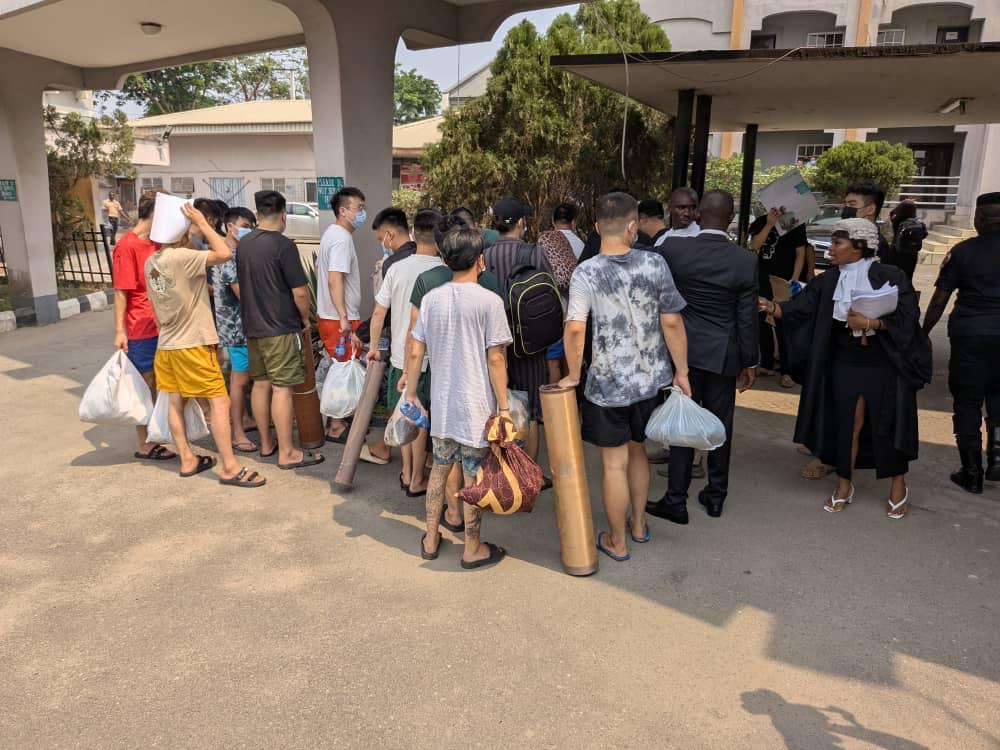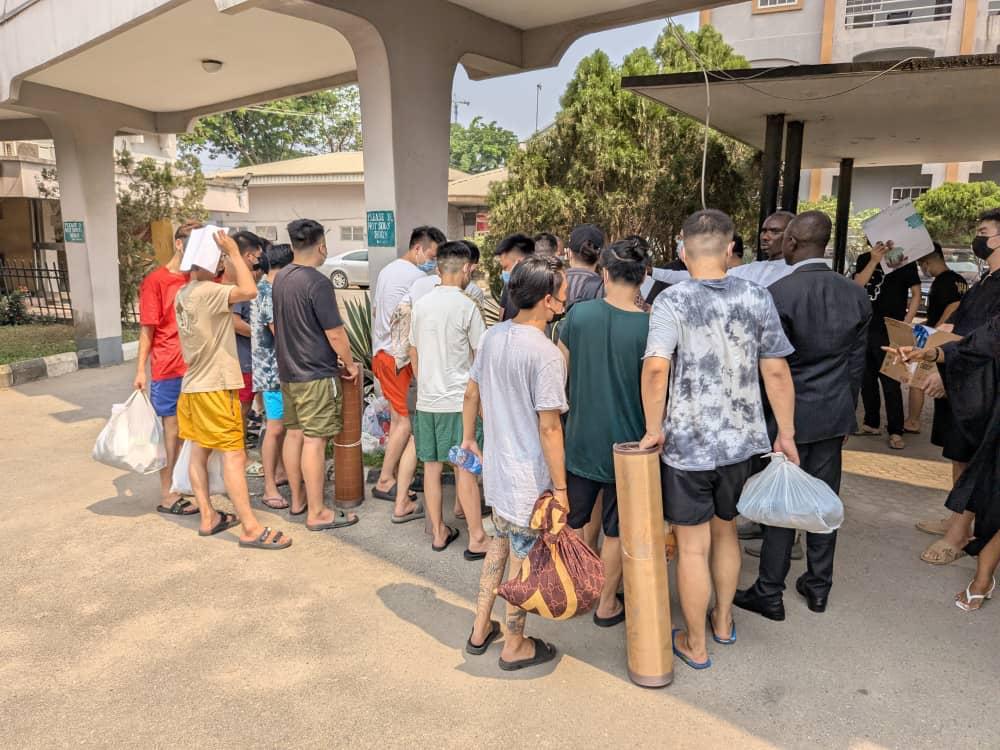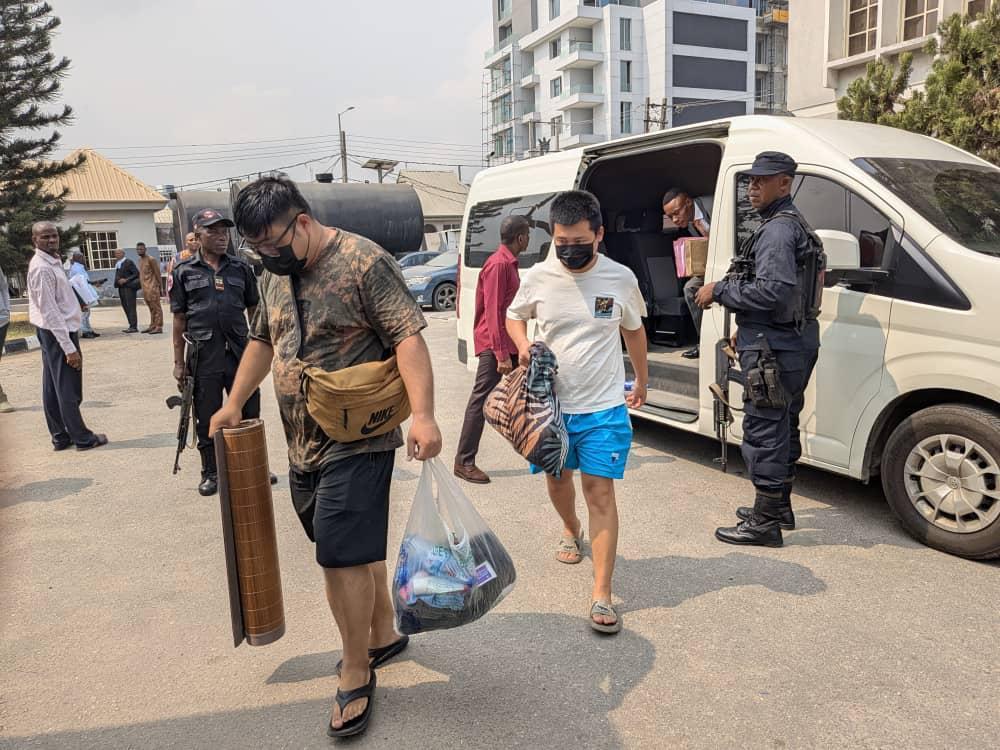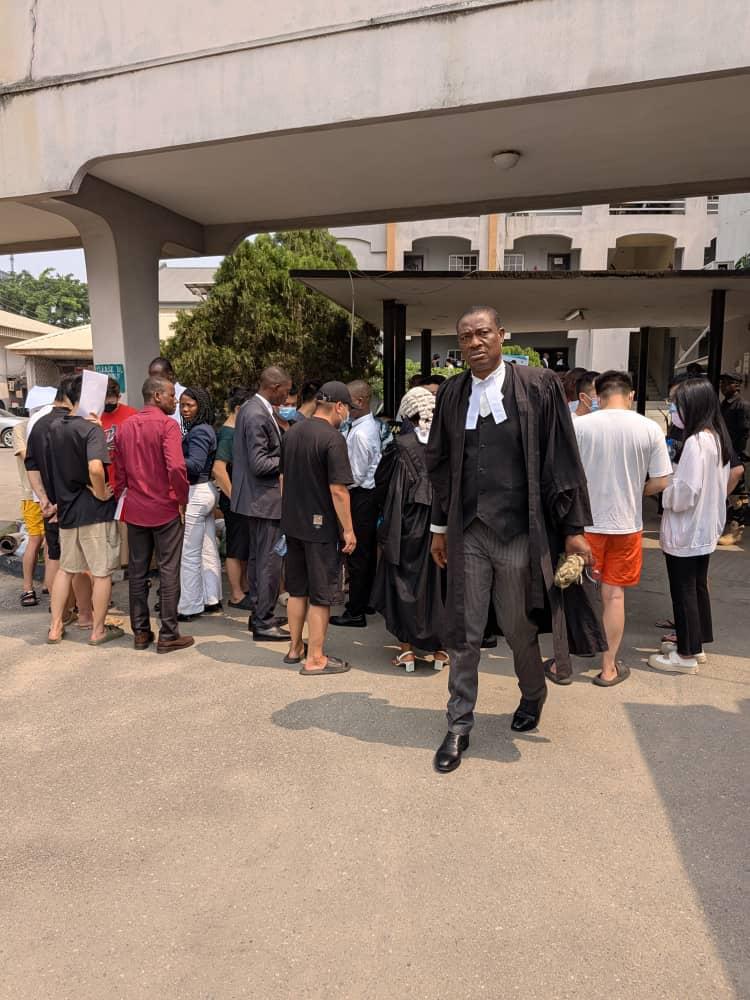
The Economic and Financial Crimes Commission, EFCC on Monday secured an interim forfeiture order for digital assets valued at $222,729.86, over fraudulent activities allegedly linked to Chinese, and Filipino nationals.

Justice Alexander Owoeye of the Federal High Court in Lagos granted the interim forfeiture order following a motion ex-parte moved by Zeenat Atiku, a prosecuting counsel with the Economic and Financial Crimes Commission (EFCC).
The motion was brought pursuant to Section 44 (2)(B) of the 1999 Constitution (as amended) and Section 17 of the Advanced Free Fraud and Other Fraud-Related Offences Act No. 14, 2016.
The court also directed the EFCC to publish the interim forfeiture order in a national newspaper, allowing anyone with an interest in the assets to appear before the court within 14 days to show cause why the assets should not be permanently forfeited to the Federal Government.

The order reads, “An interim forfeiture order of this Honourable Court forfeiting to the Federal Government of Nigeria digital assets listed in the schedule hereunder, which proceeds were traced and reasonably suspected to be proceeds of unlawful activities.”

In a 7-paragraph affidavit deposed to by one Owolabi Taiwo, an EFCC investigating officer, the Commission had received intelligence about a large-scale fraud involving foreign nationals operating in Lagos.
He said a subsequent sting operation led to the arrest of 792 suspected cybercriminals and the seizure of approximately 1,000 routers, SIM cards, computers, and mobile phones.
According to the deponent further investigation revealed that these suspects were part of a syndicate engaged in cryptocurrency investment fraud and dating scams.
He stated that the syndicate financed its operations through Genting International Co. Limited (GICL), a Nigerian-registered company.
He stated that the company’s Union Bank account received over N2.26 billion from April to December 2024.
He added “Bank statements showed that the primary inflows into the account came from cryptocurrency vendors Chukwuemeka Okeke (CO) and Alhassan Aminu Garba (AA), who provided statements under caution. They reported receiving a total of $2.39 million in USDT from the syndicate through peer-to-peer trading. Further blockchain analysis traced these funds to wallet addresses linked to fraudulent schemes, including Conti.vip.
“The investigation also revealed that GICL, established by foreign nationals, was used to launder the proceeds of fraudulent activities. These individuals, operating without valid work permits, are violating Nigerian laws”.
Justice Owoeye has adjourned the case to March 7, 2025, for a report on compliance.
Meanwhile, the EFCC yesterday arraigned 58 foreign nationals comprising of Chinese and Filipino nationals before the federal high court in Lagos on charges of alleged impersonation, fraud, and attempts to destabilise Nigeria’s constitutional structure.
They were separately arraigned before Justice Ayokunle Faji, Justice Chukwujekwu Aneke, Justice Denide Dipeolu, and Justice Alexander Owoeye respectively.
Some of the defendants who were arraigned before four separate courts are Cherry De Leon (A.K.A Yesh De Leon), Khurram Shanzad, Fernad Fu Fang (A.K.A Kim), Tan Soon Kar, Rex Jose Dilag (A.K.A Madison), Jamal Polea, Jamilyn Jaynee Gonzalez (A.K.A Jam Galanza) and Hannah Jaramillo (A.K.A Max De Leon).
Others Lin Haobo, An Hongxu (a.k.a Ruike), Shitou Shizilong, Pan Jiong, Zhow Kunji, Huang Xiao Liang (a.k.a Liu Xiao Liang), Peng Sen Lin (a.k.a Peng Song Lin, Pen Sen Ling, Dong Fang Hong, Huang Ren Jan, Shi Yang Xiong, Lu Yi Liang, Guo Giang (a.k.a Lisa), Wen Zong Xu, Pan Cai Yu, and Guo Zhi Yong.
Other defendants are Danica Manulit (A.K.A. Dan Ruiz), Vera Dela Cris (A.K.A. Nina Vera Gonzal), Joey Gracia, Beverlyn Gumayo Casino (A.K.A. Sumayo), and Tricia Jenylyn Castro (Alias T. J. Castro).

The defendants were among a group of suspected fraudsters apprehended on December 10, 2024, by the Economic and Financial Crimes Commission (EFCC) at their hideout on No. 7, Oyin Jolayemi Street, Victoria Island, Lagos, following credible intelligence gathered by the EFCC.
They were arraigned by EFCC team of prosecutors comprising of Bilikisu Buhari-Bala, Suleiman Ismail Suleiman, Chineye Chisara Okezie, Hannatu Kofarnaisa, N. K . Ukoha, T. J .Banjo, and M. S. Owede.
They were arraigned on separate charges bordering on alleged cybercrimes, cyber-terrorism, possession of documents containing false pretence and identity theft, among others.
The defendants were accused of secretly procured and employed several Nigerian youths for identity theft and other computer related fraud.
The offences are punishable under Sections 18 and 27 of the Cybercrimes (Prohibition, Prevention, Etc.) Act, 2015, as amended in 2024.
After the charges were read to each defendant individually, they all pleaded not guilty.
Following their not guilty plea, the court ordered that the defendants be remanded in the Nigeria Correctional Centres.
The females defendants were remanded in Kirikiri Correctional Centre, while their male counterparts were remanded at the Ikoyi Correctional Centre.
EFCC told the court that on or about December 18, 2024 in Lagos, the defendants, willfully caused to be accessed computer systems organised to seriously destabilise the constitutional structure of Nigeria (which prohibits and prevents cyber and related crimes) when they procured/employed Nigerian youths for identity theft and to hold themselves (Nigerians) out as persons of foreign nationality, with the intent to gain financial advantage for themselves (The defendants ).
The Commission also told the court that sometime in December 2024 at Lagos, the defendants willfully gave false information to officers of the Economic and Financial Crimes Commission in the course of investigation when they were being questioned for being part of a criminal syndicate group, specialized in Romance scam, crypto currency fraud, cyber terrorism amongst others.
According to EFCC, the offence committed is contrary to Section18 and 27 of the Cybercrimes (Prohibition, Prevention, Etc) Act, 2015 (As Amended,2024), 39(2) of the Economic and Financial Crimes Commission (Establishment) Act, 2004 and punishable under Section 39(2) (b) of the same Act.
The different cases have been adjourned till February 20, 21, 24, 28, March 18, 2025, for trial.
Comments